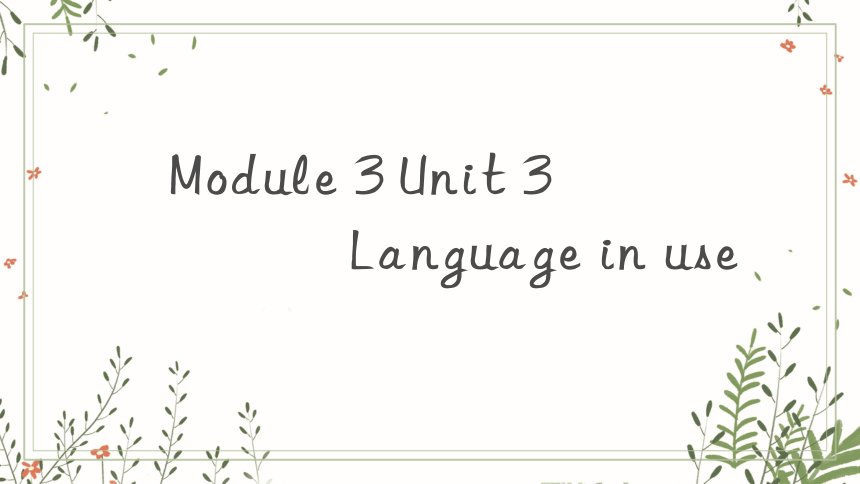(
课件网) Module 3 Unit 3 Language in use Module 3 的语法①: 部分双音节和多音节 的形容词比较级 单音节和部分双音节的形容词的比较级变形规则 1. 一般直接加--er 2. 以e结尾的形容词加--r 3. 以重读闭音节结尾的形容词双写词尾加--er 4. 以辅音字母+y结尾的形容词,变y为i加--er clever-_____ small -_____ nice- _____ cute- _____ hot- _____ easy-_____ happy-_____ 部分双音节和多音节形容词: 一般这类形容词的比较级是在其前加 more 构成。例如: dangerous difficult exciting expensive friendly famous boring more dangerous more difficult more exciting more expensive more friendly more famous more boring 1) Football is _____ than baseball in most countries. 在很多国家,足球比棒球更流行。 2) Nothing is _____ than playing tennis. 没有什么比打网球更令人愉快的了。 3) It’s _____ to practise in winter (than in summer). 冬季训练(要比夏季训练)难度更大。 more popular more enjoyable more difficult 口诀: 比较级有规律, 词尾加上-er两兄弟; 要是以e来结尾, 只有小二(r)跟上去; 重读闭音节词要牢记, 双写千万别忘记; 要是“辅音+y”来结尾, 小艾(i)要把y来替, 再加-er两兄弟; 多音节词加上m-o-r-e, 你看这样多容易。 2.形容词比较级的不规则变化 原级 比较级 good, well better bad/ill worse many/much more little less far farther/further We must get further information to finish the project. further 表示“更进一步的…” Mr 4 stands farther than Mr 3. farther表示地点/距离上的 “更远” 1 2 3 4 (2017·江苏连云港) —How do you like the song Chengdu sung by Zhao Lei —Oh, I have never enjoyed a _____ one before. A. worst B. best C. worse D. better Module 3 的语法②: 副词 Quickly, suddenly and heavily are adverbs. Observe 有许多副词是由形容词 + ly 构成的 quick (adj.) + ly quickly sudden (adj.) + ly suddenly heavy (adj.) + ly heavily 以le结尾的形容词需要去掉e再加y possible →possibly 以y结尾的形容词把y变成i,再加ly busy + ly → busily heavy + ly → 有一些词既可以作形容词,也可以做副词,常见的如下: 一般说来,副词主要用来修饰_____、_____和_____。例如: She plays the piano badly. I’m really tired after last night’s tennis match. The teacher speaks very slowly and carefully. 副词的基本用法 动词 形容词 副词 副词与形容词在位置及功能上不同。 1.He is a fast learner. 2. Don't drive so fast! 3. He learnt to play the piano at an early age. 4.We arrived early the next day. 5. She's late for work every day. 6.She has to work late tomorrow. adv. adj. adv. adj. adv. adj. 形容词通常位于系动词之后或名词之前 副词修饰动词时通常出现在行为动词(实义动词)之后 3 Complete the sentences with the correct forms of the words in brackets. 1. They are working (hard) to learn English. 2. This bike was (cheap), so we decided to buy it. 3. The teacher speaks (slow) and (careful). hard cheap slowly carefully 4. Mary is going to get up (early) because she needs to catch the first bus. 5. Running is very (easy). You can do it anywhere. 6. I do not like to be (late). 7. I am afraid our team is doing very _____(bad). early easy late badly 副词比较级 副词比较级和形容词比较级的变化形式 ... ...

